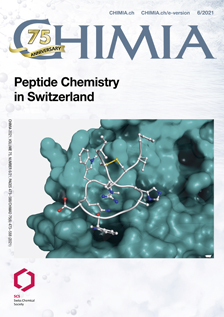Precision-engineered Peptide and Protein Analogs: Establishing a New Discovery Platform for Potent GPCR Modulators
DOI:
https://doi.org/10.2533/chimia.2021.489PMID:
34233810Keywords:
Drug discovery, Gpcr, Peptide, Protein engineeringAbstract
Numerous members of the human G protein-coupled receptor (GPCR) superfamily are receptors of therapeutic interest. GPCRs are considered to be highly tractable for drug discovery, representing the targets of approximately one-third of currently licensed drugs. These successful drug discovery outcomes cover only a relatively small subset of the superfamily, however, and many other attractive receptors have proven to present significant challenges. Among these difficult GPCRs are those whose natural ligands are peptides and proteins. In this review we explain the obstacles faced by GPCR drug discovery campaigns, with particular focus on those related to peptide and protein GPCRs. We describe a novel and promising approach for these targets based on engineering of their natural ligands and describe an integrated discovery platform that allows potent ligand analogs to be discovered rapidly and efficiently. Finally, we present a case study involving the chemokine receptor CCR5 to show that this approach can be used to generate new drugs for peptide and protein GPCR targets combining best-in-class potency with tunable signaling activity.Downloads
Published
2021-06-30
Issue
Section
Scientific Articles
License
Copyright (c) 2021 Kalyana Bharati Akondi, Marianne Paolini-Bertrand, Oliver Hartley

This work is licensed under a Creative Commons Attribution 4.0 International License.
How to Cite
[1]
Chimia 2021, 75, 489, DOI: 10.2533/chimia.2021.489.







